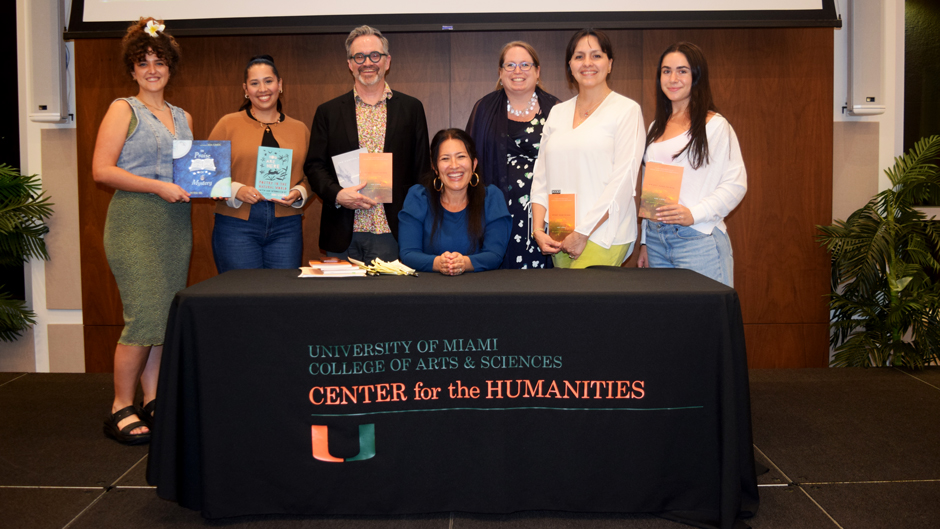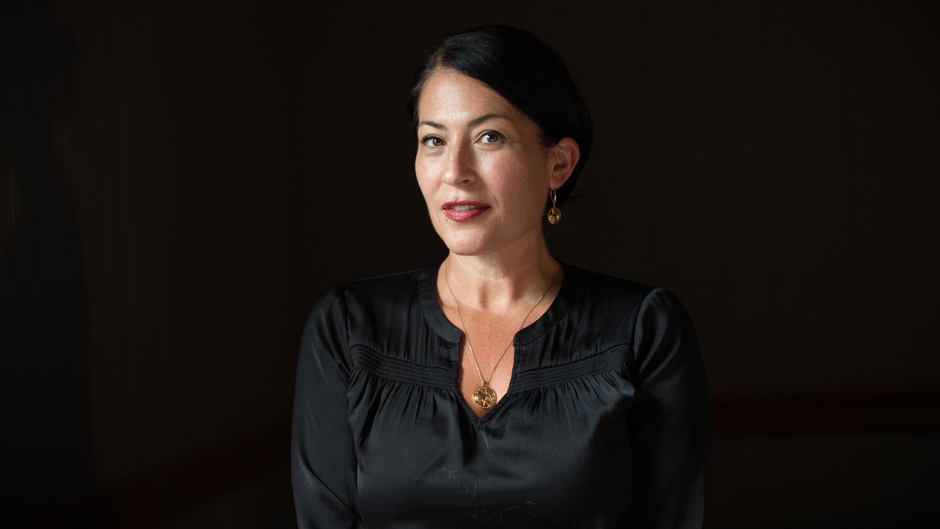When Ada Limón, the 24th poet laureate of the United States, spoke to members of the University of Miami community, she didn’t just share her critically acclaimed work. She also made a case for the relevance of poetry in modern times.
“I think that the world needs a secular, sacred language that praises and exults beauty and wisdom and knowledge and empathy and intelligence, and I think poetry is that language,” Limón said, speaking at a Feb. 20 College of Arts and Sciences Center for the Humanities event. “I believe that to my core. And it’s not going to change everyone’s life, but it might save one, and maybe the only life it saves is yours, but isn’t that enough?”
This belief in the power of poetry has been a key tenet of Limón’s work as U.S. poet laureate, a role she has used to make poetry more accessible to broader audiences.
Limón, whose work often explores the relationship between people and the natural world, has partnered with the National Park Service and the Poetry Society of America to create poetry installations on picnic tables in national parks. As part of this initiative, which seeks to help visitors connect with nature through poetry, she recently unveiled a poetry installation at Everglades National Park.

“Whatever their subject, her poems invite readers into a shared space,” said Jaswinder Bolina, chair of the Department of English & Creative Writing at the College of Arts and Sciences and an award-wining poet, introducing Limón at the Center for the Humanities event. “One rich with earthy detail, with singular description and perspective, rich with humanity, warmth, and generosity even when they challenge us to see our nation, our neighbors, and our world in new and complicated ways.”
Limón read from several of her six poetry collections during the event, which was part of the Center’s Henry King Stanford Distinguished Lecture Series in the Humanities. Among the poems she shared was “In Praise of Mystery: A Poem for Europa,” which she wrote for NASA’s Europa Clipper mission. The poem was engraved in Limón’s handwriting on a spacecraft that is currently on its way to Europa, one of Jupiter’s moons.
“I’m very, very grateful to my grandmother, Allamay Barker, who during the summertime would make me practice my cursive, because now it’s on a spacecraft,” Limón joked, provoking laughter from the audience at the University’s Kislak Center in Richter Library. “It is a poem for this planet, and every NASA scientist you meet will tell you, ‘This, this is the best planet. We’re on the best one.’”
After reading her poetry, Limón took questions from the audience. A 10-year-old aspiring poet asked where Limón found her inspiration.
“I’m so glad you’re writing your own poems,” Limón said. “My inspiration comes from a lot of different things. Chief amongst them is definitely the natural world. I find that for me, if I’m feeling stuck or if I’m looking for a subject, all I need to do is look at the wonder and beauty around me.”
“And keep it up!” she added. “We need your poems.”

